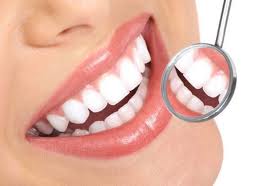

| Visitors Now: | |
| Total Visits: | |
| Total Stories: |
Dementia Can Be Prevented According to New Study
Got teeth or gum problems?
Sticky bacterial plaque that builds up on your teeth. Inflamed, bleeding gums. They don’t just threaten your dental health.
A growing body of research finds that bacteria and inflammation in your mouth are also associated with other problems, including heart attack and dementia, and may well jeopardize your overall health.
Can Using Colloidal Silver Help You Prevent Dementia?
Researchers are discovering that in many cases, dementia can be caused by bacteria that migrate from the oral cavity into the brain, causing inflammation and brain damage. Can colloidal silver help? You bet it can!
In a recent study, researchers from the University of California followed nearly 5,500 elderly people over a period of 18 years.
They found that those who brushed their teeth less than once per day were 65% more likely to develop dementia than those who brushed more frequently.
How could brushing your teeth more frequently result in lower risk of dementia?
According to Annlia Paganini-Hill, who led the study, which was published in the Journal of the American Geriatrics Society:
“Some studies have also found that people with Alzheimer’s disease, the most common form of dementia, have more gum disease-related bacteria in their brains than a person without Alzheimer’s.”
In other words, according to Paganini-Hill, when proper oral health care is not followed, bacteria known to cause gum disease can migrate into the brain, “causing inflammation and brain damage.”
can migrate into the brain, “causing inflammation and brain damage.”
For example, in a study titled, “Tooth Loss, Dementia and Neuropathology in the Nun Study,” published in the Journal of the American Dental Association, it was discovered by researchers that the more teeth a person loses to periodontal disease during aging, the greater the incidence of dementia.
According to an article in Prevention magazine:
“Experts think oral bacteria may spread to the brain through cranial nerves that connect to the jaw or through the bloodstream, and may contribute to the type of plaque that’s been linked to Alzheimer’s.”
Recommended Related to Oral Health
Electric Toothbrushes: Are They for You?
Elizabeth Turkenkopf has been using an electric toothbrush for more than seven years, and has been impressed with the results — cleaner teeth and minimal plaque build-up, which translates into less scraping at her regular dental check-ups. She hasn’t had a cavity since she made the switch from a hand-powered toothbrush, and her gums are in good shape. Although she can’t say for sure her pristine oral health is the result of her electric toothbrush, she’s not messing with success. “Power toothbrushes…
Read the Electric Toothbrushes: Are They for You? article > >
Scientists have identified several associations between poor oral health and other health problems — although they can’t yet establish cause and effect. This list of health problems has been growing as research continues.
Plaque and Its Effects on Your Dental Health
Sticky plaque is a kind of biofilm. A thin grouping of bacteria, plaque biofilm lives on gum tissue, teeth, and crowns.
Plaque constantly forms on your teeth. When you eat or drink foods or beverages with sugars or starches, the bacteria release acids that attack your tooth enamel.
The plaque is so sticky that it keeps the acids in contact with your teeth, in time breaking down the enamel so that tooth decay occurs.
Plaque buildup can also lead to gum disease — first gingivitis, the tender and swollen gums that sometimes bleed. If it progresses, severe periodontal (gum) disease can develop. Gum tissue pulls away from the teeth, allowing the bacteria to destroy the underlying bone supporting the teeth.
Periodontal and Other Diseases
To date, scientists have found associations between periodontal disease and a number of other problems, including:
- Heart disease
- Diabetes
- Dementia
- Rheumatoid arthritis
- Premature birth
What’s behind the links? Experts can’t say for certain, but they believe that oral bacteria can escape into the bloodstream and injure major organs.
and injure major organs.
Inflammation is probably a common denominator, experts say. Periodontal disease, marked by inflammation, may increase inflammation throughout the body. Inflammation, in turn, is an underlying problem in diseases including heart disease and rheumatoid arthritis.
Gum Disease and Heart Disease
Over the years, many studies have found an association between periodontal disease and heart disease, with patients who have gum disease more likely also to have poor heart health, including heart attacks.
In 2009, a consensus paper on the relationship between heart disease and gum disease was developed by the American Academy of Periodontology and The American Journal of Cardiology. It was published in the Journal of Periodontology and The American Journal of Cardiology.
The joint recommendations encourage cardiologists to ask their patients about any gum disease problems, and the periodontists to ask their patients about any family history of heart disease and their heart health.
So don’t be surprised if your periodontist or your internist or cardiologist asks you some new questions on your next visit.
Can Using Colloidal Silver Help You Prevent Dementia?
Researchers are discovering that in many cases, dementia can be caused by bacteria that migrate from the oral cavity into the brain, causing inflammation and brain damage. Can colloidal silver help? You bet it can!
In a recent study, researchers from the University of California followed nearly 5,500 elderly people over a period of 18 years.
They found that those who brushed their teeth less than once per day were 65% more likely to develop dementia than those who brushed more frequently.
How could brushing your teeth more frequently result in lower risk of dementia?
In other words, according to Paganini-Hill, when proper oral health care is not followed, bacteria known to cause gum disease can migrate into the brain, “causing inflammation and brain damage.“
Place one drop colloidal silver on your toothbrush at every brushing
Emerging science suggests that killing bacteria and fungal infection on the teeth and gums dramaticdally reduces human diseases. Colloidal silver kills all harmful pathogens quickly and safely.



